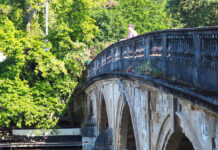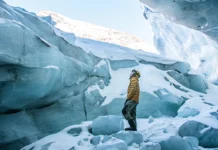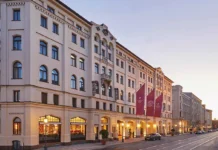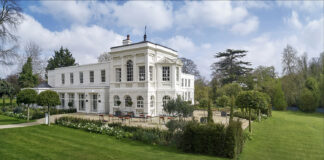Dumela rra! Or, to any ladies reading this, dumela mma.
I’m in the southern African country of Botswana, and although there are more than 20 languages spoken here, I’ve settled on greeting you in the national one, Setswana. Thankfully, English is an official language, too.
Botswana is the most exclusive safari destination in Africa; consequently it’s also the most expensive. The country is sparsely populated, and understandably the local people want to keep their pristine ecosystems as wild and beautiful as they can be, allowing the incredibly rich wildlife around them to flourish. Like Bhutan, half a world away, the government is therefore deliberately pursuing a strategy of low volume, high value tourism. Visit Botswana and they’ll make sure you have an extraordinary time, but you can’t do it on the cheap.
I’m visiting Botswana to experience firsthand three of the new safari camps which have opened here in the past year. Each of them takes the concept of “camping” to new levels of luxury, but what I’m most interested in is the way which they immerse guests in remote wildernesses. It’s the possibility of solitude, the peace you find when you are hours away from anywhere, and the concentration and proximity of some of the mightiest creatures on earth — African elephant, white rhino, and lion — that make Botswana such an extraordinary destination and well worth every penny.
The camps, each one in their own private concession within a game reserve or national park in the Okavango Delta, are best accessed by light aircraft. The tiny planes bump along on the thermals, often not that far above the trees, but with this birds’ eye view I not only see the elephant herds from above — something truly magical — but also get a sense of the terrain. In the Delta, the line between water and land is blurred, even during the dry season.
First stop is Gomoti Plains Camp, which lies alongside a natural water channel. From the deck of my tent, I can see a giraffe ambling by, and a kudu (a large antelope) temporarily blocks the path before skittishly taking flight. Last year 33 white rhino where relocated here from South Africa by Rhinos Without Borders — an ambitious initiative to protect them from poachers — so there is a significant of seeing them, too.
With only a handful of guests staying at Gomoti Plains at any one time, there’s a good chance that you’ll get a guide to yourself. Mott enthralled me with his stories of the bush, had a detailed knowledge of the Delta’s flora and fauna, and was a most hospitable host when he stopped the Land Cruiser to serve me the nightly sundowner (in my case a cold G&T).
As the crow flies, it’s only a short hop from Gomoti Plains to Rra Dinare, but the water is a formidable natural barrier, so I flew. The water channels dominate the landscape here, so it bridges away with game drives, replacing the usual safari 4×4 with a dug out mokoro canoe.
The pace of travel — and life in general — is slower from a canoe. The only sound is the mapping of the water against the boat and the occasional squawk of the water birds. Early in the morning, before the day becomes hot, is the best time for exploring, just as the birds and animals are waking up and they come to the water’s edge to drink.
Last and most impressive is Sable Alley, Natural Selection’s latest property. The central lodge is a palatial structure rooted in thatch but open on three sides so that the breeze blows through and the views are unhindered. A watering hole packed with grunting hippos sits right in front of the camp; you can watch them whilst taking a cooling dip in the infinity, or sat on the deck with a cold glass of South African wine in one hand.
It’s the wildlife sightings which really excite me. All the big five — rhino, elephant, buffalo, lion, and leopard — are present in good numbers, and so too are rare African wild dog, jackal, warthog, and even cheetah. Every moment of the day, from before dawn until well after nightfall, I’m seeing and learning something new. I’m immersed in the incredible, unspoilt beauty of the Delta, a rare chance to step away from man made environments and to revel in the peace of paradise. If you, too, want to experience a pristine wilderness, the Okavango Delta is the place to come.
Wishing you were here,
Sophie
Digital Version
Subscribe to Swanky Retreats Magazine’s DIGITAL version. Read the latest issue online or download it to your computer.












